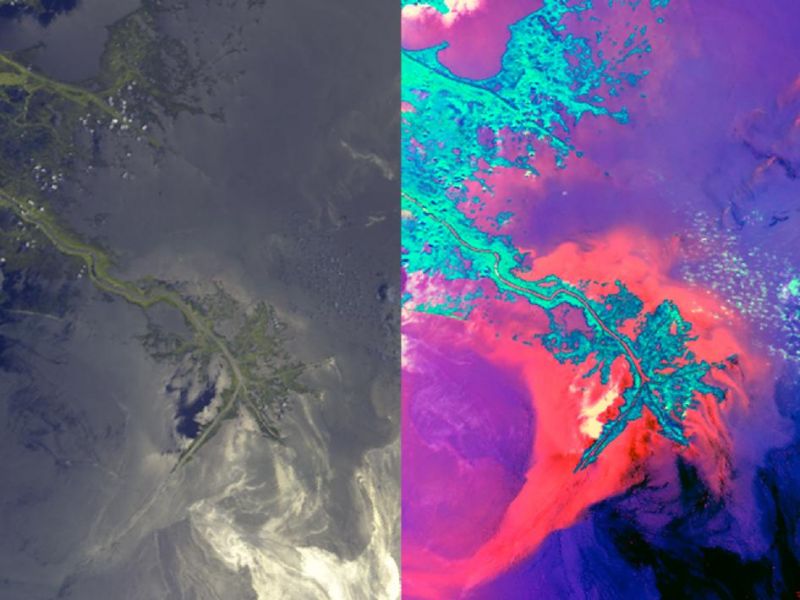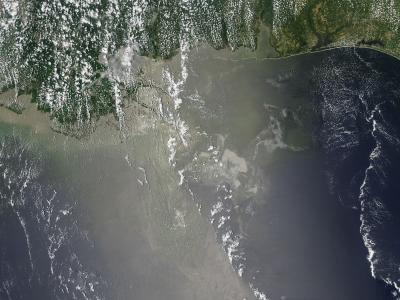
Multiple cameras on JPL's MISR instrument on NASA's Terra spacecraft were used to create two unique views of oil moving into Louisiana's coastal wetlands. Image Credit: NASA/GSFC/LaRC/JPL, MISR Team
A compilation of spill science for 14 June 2010 that might otherwise be hard to see camouflaged against the clutter of headlines.
- By slowly increasing the percentage of water flow down the main stem of the Mississippi, oil can be held offshore longer, giving response crews more time to deal with it before it poses a greater threat to sensitive wildlife and marsh and mangrove habitats, suggests an Audubon coastal scientist.
- The six-month moratorium on deep-water drilling in the Gulf of Mexico has waylaid the research of an oceanographer at Louisiana State University, who uses ROVS attached to deepwater oil rigs to video strange creatures living up to 8,000 feet below the surface. Just when we need their underwater eyes to see the marine life most affected by the spill, the ROVs are all being redeployed to shut down exploratory wells so the rigs can move on to drill in other waters.
- How bad is it for workers in the spill zone? One analysis by a former OSHA inspector finds a synergy of alarming trends: bad planning (sampling isn’t taking place in the right places at the right times); not enough sampling (25,000 workers, less than 2,500 air samples collected in 52 days since April 20; not even one worker’s exposures to all chemicals has been characterized); not sampling for the right things (ultrafine particles, for instance).
- NOAA finally gets all its data up on one new interactive website for anyone to see. Only took 55 days [to make the data public]. The map provides layers showing everything from turtle stranding sites to fishing closures to cleanup assessments to satellite images of the spill.
- Rapid Response Research Grants from the National Science Foundation are available for Gulf of Mexico oil spill research. This is a part of a system designed to receive and review proposals with “a severe urgency with regard to availability of or access to data, facilities, or specialized equipment, as well as quick-response research on natural or anthropogenic disasters and similar unanticipated events.”
- Scientists aboard the research vessel the Walton Smith have found a 23-mile-long plume of oil headed towards Florida’s Dry Tortugas national Park, breeding grounds for sooty terns, brown noddies, masked boobies, and magnificent frigatebirds.















